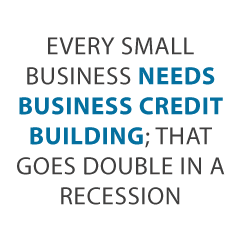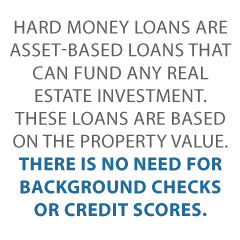4 Lifesaving Ways to Get Fast Working Capital in a Recession
The COVID-19 pandemic caught the world by surprise and turned the economy upside down. If you are a business trying to make it during this time, we can help. The Federal government has approved funding through The CARES Act, including the Paycheck Protection Plan. In addition, many states and local organizations are offering their own COVID-19 relief options. If you need funds fast, keep reading for ways to get fast working capital in a recession.
Don’t Drown: Get Fast Working Capital in a Recession Regardless of Credit
If you are drowning, you need help fast. There is no time to learn how to swim if you don’t already know. You can’t learn how to float in a heartbeat. You need a life preserver. The same is true if you find yourself in need of fast working capital in a recession. You can’t learn to swim at that point. You need immediate help, and once you are safe, then you can focus on longer term solutions.
However, fast working capital in a recession isn’t easy to come by. In fact, it can seem nearly impossible. There is hope though. You can escape from the recession storm, but it is going to take a lot of work. If you move in the right direction and grab the life preserver, I am about to toss you, survival is possible.
While the goal is to never get back into that kind of danger again, you have to actually get out of the water alive first. Here’s how.
Invoice Factoring for Fast Working Capital in a Recession
Not only is invoice factoring the fastest way to cash, it is also an option that depends very little on your credit, personal or business. In fact, sometimes there isn’t even a minimum credit requirement. They may pull a credit score, but they make decisions based more upon the strength of your invoices.
The lender will gather information to help them determine the likelihood of the invoices being repaid. If they find that the invoices are strong, they will lend money based on the total amount of the invoices minus a premium. The borrower can usually either repay the loan or the lender can keep the invoices and collect from them.
Hit the jackpot and weather any recession with our best webinar and its trustworthy list of seven vendors who can help you build business credit.
Here are a couple of options for creditors that offer invoice factoring without a minimum credit score or despite a low credit score.
Fundbox
Fundbox offers invoice financing for amounts less than $100,000. There is no minimum credit score, and there are options for a 12- week or 24-week repayment term.
BlueVine
If you have a larger amount in open invoices, like up to $5 million, you can get invoice financing from BlueVine.
Merchant Cash Advance
This is very similar to invoice factoring, but the funds are based on average credit card sales. For example, if you average $20,000 in credit card sales per year, a merchant cash advance would allow you to access that cash at a premium.
Here is how it works. If $20,000 is the average, you would get maybe $16,000 of that up from the creditor. Then, they would take a percentage of your credit card sales, usually weekly, until the whole $20,000 was paid off.
It isn’t perfect, but it is definitely fast, and therefore an option for fast working capital in a recession.
Working Capital Loans for Fast Working Capital in a Recession
If you need really working capital in a recession, invoice factoring or a merchant cash advance is your best bet. Of course, that only works if you have credit cards sales or invoices to factor. Another option, which takes a little more time, is to apply for a working capital loan from an alternative lender.
Some alternative lenders pull a credit report, but they have a low minimum score requirement. For example, Fundbox offers working capital loans to businesses that have been in operation for at least 3 months and have at least $50,000 in revenue. They lend amounts up to $100,000, and there is no credit check
Kabbage offers something similar if you have been in business for at least 1 year and have $50,000 in revenue. They will lend up to $250,000. There is no minimum credit score here either, but most approvals have over 500. You also have to have either a business checking account or use and online payment platform.
Quaterspot will lend up to $250,000 if you have been in business for at least one year and have at least $200,000 in annual revenue. They will do a soft credit pull, but it does not affect your credit. The minimum score is 550.
Business Credit Cards for Fast Working Capital in a Recession
Even if your personal credit isn’t fabulous, you can get fast working capital in a recession with business credit cards. How? You can do it with your business credit. That is, your business credit score. It is totally separate from your personal credit score.
If you have business credit you can access those cards for fast working capital in a recession if needed. Of course, credit cards are not an ideal source of working capital, but if you need a way out of the waves, they work well as a life preserver.
Hit the jackpot and weather any recession with our best webinar and its trustworthy list of seven vendors who can help you build business credit.
Credit Line Hybrid
A credit line hybrid is revolving, unsecured financing. It allows you to fund your business without putting up collateral, and you only pay back what you use. It even works for startups.
What are the Qualifications?
How hard is it to qualify? It’s probably easier than you think. You do need good personal credit. That is, your personal credit score should be at least 685. In addition, you can’t have any liens, judgments, bankruptcies or late payments. Also, in the past 6 months, you should have less than 5 credit inquiries, and you should have less than a 45% balance on all business and personal credit cards. It’s also preferred that you have established business credit as well as personal credit.
If you do not meet all of the requirements, all is not lost. You can take on a credit partner that meets each of these requirements. Many business owners work with a friend or relative to fund their business. If a relative or a friend meets all of these requirements, they can partner with you to allow you to tap into their credit to access funding.
How to Get Business Credit
If you are not in trouble yet, start now establishing and building business credit so that when hard times come, are ready to meet them head on. Even if you are already in trouble, find one of the other options for fast working capital in a recession and go ahead and get busy working on your business credit. You can start at any time, even if you are in the middle of a recession storm. Here’s how.
Establish Business Credit
The first step in getting business credit is to establish your business as a separate entity from yourself. This isn’t hard at any point, but it is a lot easier if you start at the beginning. Start by ensuring your business has its own contact information. It cannot have the same address, telephone number, or email address as you. The telephone number needs to be toll-free, and the email address should have the same URL as your business website. Yes, you need a website. More on that later.
Next, set up your business as a formal corporation. It needs to be either a corporation, S-corp, or LLC. Operating as a sole proprietor or partnership will not suffice for business credit purposes.
After this, you need to apply for two different identifying numbers. The first is an EIN. This is similar to a social security number, but for your business. You can apply for free on the IRS website. After that, you need a DUNS number. This is a number assigned by Dun & Bradstreet, the largest and most often used business credit reporting agency. Apply for it for free on their website.
Set Up a Separate Bank Account
This not only helps to separate your business from yourself, but it also helps keep business and personal finances separated. It will be easier to track business expenses and income, which is a huge time saver come tax time.
Work with Starter Vendors
These are vendors that will extend net 30 terms on invoices and report payments to the credit agencies without checking your credit. You may have to make a few initial purchases, and some have a minimum time in business or revenue requirement. Companies in that will do this are the best place to start when it comes to getting payments reporting to establish business credit.
Beyond Starter Vendors
Once you have a few starter vendor accounts reporting you will be able to apply and get approval for other credit cards, which can be a source of fast working capital in a recession. The store cards are the next step. These include credit cards connected to specific retail stores such as Amazon, Best Buy, and Office Depot.
After enough of these are reporting to the credit agencies, you can apply for fleet credit cards. They include cards from Fuelman, WEX, and others that can be used for fuel as well as vehicle repair and maintenance.
Eventually, you will have enough accounts reporting that you can apply for, and get approval for, cards general use credit cards. This is where you can really access significant fast working capital in a recession if necessary. Cards in the cash credit tier include MasterCard and Visa cards that are not attached to a specific store or limited by the type or location of purchase.
Like I said, even if you do not have business credit in place before the recession hits, this process will still work. You can use it at any time, but if you already have business credit in place, it will be easier and faster to use it to access fast working capital in a recession.
An Ounce of Prevention…Always Prepared
Once you are out of the water, don’t get back in until you know how to handle yourself. Learn how to swim, take a survival class, and be prepared.
The way you do this is by establishing and building strong business credit. Not only will this keep you out of choppy water, but it can turn that same churning nightmare into beautifying, relaxing, calm waters.
Here is how you start.
Figure Out What Happened
Did you fall overboard or were you pushed? If hard times just sent you flying over the rails and into the churning waves, don’t sweat it. It happens. Just grab a hold of the first floating object you can find, hold on for dear life, and make it through. Use the fast working capital in a recession and you will come out on the other side.
If, however, your peril was caused by foolish decisions, poor planning, or some undiscovered fraud, you are going to have some work to do when you get out. Damage control is in order. Figure out what happened and take steps to ensure it doesn’t happen again.
Hit the jackpot and weather any recession with our best webinar and its trustworthy list of seven vendors who can help you build business credit.
Learn to Read Financials
The best way to stay on top of your finances is to understand your financial statements. There is more to it that just revenue, expenses, and assets. Of course you need to understand profit, but learn to look closer. Figure out the real story your financial statements are telling you.
There is a lot to this, but the easiest and quickest way to start is to do a comparison. Take a look at what sales, profit, and expenses looked like at the same time last year, last quarter, and last month. If you see a significant change, look into it. You may find something easily explained, such as an increase in cost or a decline in sales that is standard at that time of the year.
You may, however, find something that is causing a problem. Has a cost increased significantly enough that you need to shop around for a better price? Is there a cash leak that you cannot get your hands around? It could be fraud.
Maybe receivables haven’t turned over at all in a significant amount of time. Consider increasing collection efforts or revisiting the credit policy. Learning how to read your financial statements and understand what they are telling you will help you stay out of the deep end.
Evaluate Processes
Look at your processes. Is there a more efficient way to do things? It isn’t uncommon to find that you need to make some changes during an economic downturn. Maybe you need to adjust the hours you are open or make some staffing changes. Take a fresh look at your pricing model and make any decisions that need to be made.
Use Fast Working Capital in a Recession Wisely
Whether you turn to invoice factoring, merchant cash advances, working capital loans, or business credit cards, you need to handle the working capital you access during a recession wisely. Make payments consistently on-time, and don’t blow it. It is best to have a plan and a budget in place for the funds before you have it in hand.
The post 4 Lifesaving Ways to Get Fast Working Capital in a Recession appeared first on Credit Suite.




